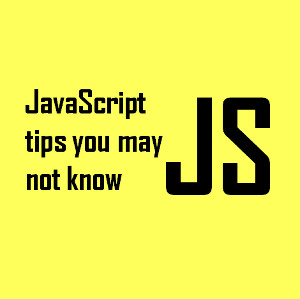Swift Or Objective-C? Which Language To Choose For iOS Development?
It is always difficult to decide that whether to use Swift or Objective-C for a project. There are numerous factors that need to be considered before starting new iOS application development. However, choosing a coding language depends on team context and preference. Rather than debating on Swift and Objective-C, developers should focus on different aspects of project requirements such as scope, team composition and technical considerations.
Few years ago, Apple released a brand-new iPhone app programming language Swift. In meantime, Swift app development company has released many versions of Swift for the developers for effective application development.
As per professional developers, Swift has amazing features and functions so that beginner application developers are showing their great interest in learning it. Swift is a good option for the developers who are already familiar with Mac and iOS development. It is a good opportunity for Mac and iOS developers to shape and advance their knowledge with Swift programming.
But, before Swift programming, Objective-C has strong dominance over iPhone application development. In it’s earlier days, for MacOS development, Objective-C was the favorite choice among the application developers. Developers can found fundamental concepts of Objective-C in iOS Software Development Kit (iOS-SDK). Thus, developers can not simply ignore the value contribution of Objective-C in iPhone app development.
Swift and Objective-C, both are equally important languages for the application. Each has its own set of features and advantages. Whenever developers compare these languages in terms of performance, both are robust, reliable and effective for application development.
Why To Learn Objective-C?
It is fair enough to say that Objective-C is the origin of iOS application development. App developers are virtually interacting with Objective-C concepts when they write code in Swift. Every iPhone app uses the core foundation of APIs. Well, Objective-C is the main source of such core APIs. Third party libraries and frameworks are the key feature of Objective-C.
iPhone applications are well known for seamless memory management and data wrapping. The terminology used behind this techniques includes APIs and functions derived from Objective-C. Implementation of Internet protocol in iPhone application has become possible due to Objective-C code. Because of robust language runtime environment, it is still a top choice of many app development companies.
Why To Learn Swift?
If the developers are clear with the basic concept of Objective, Swift is very easy language to work with. There are certain advantages of learning Swift programming language:
Bug Free
Swift has eliminated the null-pointer concept. The null-pointer is responsible for the creation of non-operational function (no-op) in the source code. No-op code ensures crash-free operation of an app but on another hand, it is also responsible for making code bulky and error prone.
Swift generates the compiler error whenever developer use no-op function in code. It also creates a feedback loop and warns developer to avoid the use of such functions in the application program. Therefore developers can start fixing bugs in application from the initial phase of development.
Highly Interactive Environment
Apple also releases two interactive coding frameworks along with Swift programming. Xcode Playgrounds and Swift Playgrounds.
Xcode Playgrounds help all beginner developers learn how to code iPhone application. Xcode Playground is a part of Mac app Xcode. This app enables beginners to explore and learn Swift language. It will help them to design prototype applications to enhance their app development ability.
The iPad app, Swift Playgrounds provides developers same interactive platform as Xcode Playgrounds. But it guides in more investigative manner so that developers can make use of hardware of iPad.
The best part about Swift is its interactive engagement with users as it delivers instant feedback and makes application coding easy to learn.
Fast
The use of Xcode in Swift has improved the speed of execution of GEMM- a memory-bound algorithm. This algorithm sequentially accesses the larger arrays used in source code. Hence, the application delivers the predictable behavior and consistent performance. Swift also offers syntaxes that are easy to use. These syntaxes provide the features as per the expectation of developers. So developers do not face any difficulties while using them in application coding.
Technical Considerations While Choosing Objective-C And Swift
Objective-C and Swift has their own technical benefits. Both languages are different in terms of technical advantages. So below are some considerations while choosing Swift and Objective-C
Language Runtime
Technically, a runtime of Objective-C is more robust than Swift. If developers decide to develop application code with the thought of objects and types, Objective-C is surely the right choice.
Code Steadiness
Swift code is more steady because of its strong error handling and typing system. Involuntary reference counting system of Swift help to prevent the potential errors in source code. Swift app development company can leverage the benefit for code steadiness.
Use of C++ Libraries
Developers can use C++ libraries on C++ cross-platform SDK. These libraries are available in Objective-C project itself. But developers unable to import these libraries directly into Swift files. To make use of C++ libraries in Swift, developers need to create Objective-C and C++ wrapper classes.
Conclusion
Thus, these are the usual factors that developers need to consider before choosing Objective-C or Swift. The main objective of both languages is to extend the success of iPhone application development.


 Ritesh
Ritesh







